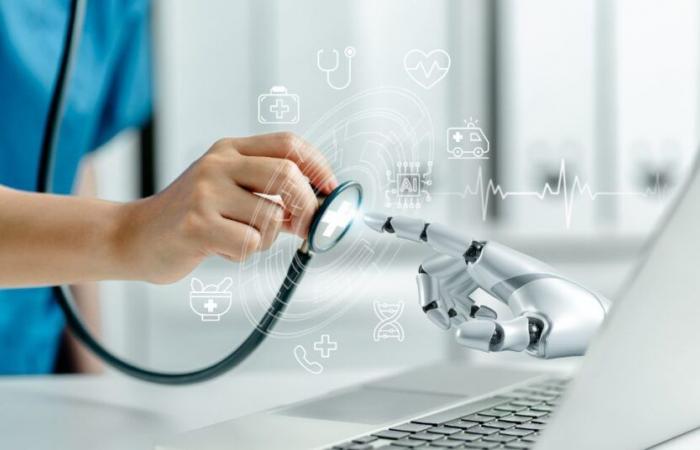Despite advances in artificial intelligence, doctors’ intuition remains crucial in medicine. Recent studies highlight this unique skill, essential for the diagnosis and treatment of patients.
As artificial intelligence (AI) continues to develop, its ability to transform the healthcare industry is undeniable. However, according to specialists in the field, it cannot replace the intuition of an experienced health professional.
The precision of intuition
Clinical intuition, often perceived as a sixth sense, plays a leading role in medical decision-making. Meredith Vanstone, lecturer, underlines, in comments shared by the site National Geographicthat it is a cognitive process where experience, knowledge and pattern recognition intertwine to assess a patient’s condition long before machines can pick up on these subtle nuances. This intuitive process allows doctors to notice warning signs that AI might overlook, contributing to a more comprehensive and personalized analysis. Medical intuition enriches the interaction between doctor and patient, promoting more effective and empathetic communication, essential for optimal care.
Studies published in 2023 in prestigious journals such as Journal of Clinical Medicine and the Journal of the American College of Surgeons demonstrated that, when faced with raw clinical data, doctors’ intuition provides an additional dimension, often more precise in terms of patient prognosis. This research suggests that even with detailed data, AI may not capture the full range of clinical nuances that intuition can perceive.
The limits of AI in medical practice
Although AI can analyze large volumes of medical data, it struggles to integrate the human and contextual factors that influence clinical decisions. Gabriel Brat of Harvard University discusses the importance of human perception, often absent from AI predictive models, but key in patient assessment.
Read also – Artificial intelligence is capable of calculating the date of our death
More precise and more humane medicine
To optimize care, a hybrid approach combining medical intuition and predictive algorithms seems ideal. Jennifer Yost of Villanova University says this combination would help compensate for the respective shortcomings of each approach, leading to better care outcomes. She emphasizes that human expertise enriches data analysis, allowing a more nuanced interpretation of clinical results. Additionally, integrating intuition into AI systems could help anticipate complications before they become critical, thereby improving patient care.
The importance of clinical intuition should not be overlooked. Integrating human expertise with AI tools could not only improve diagnostics but also personalize treatments, providing more humane and effective medicine. This synergy between intuition and technology makes it possible to take advantage of the strengths of each, enriching the therapeutic approach. It also contributes to a better understanding of individual patient needs, which is essential to optimize care.
Read also
Poll – Will artificial intelligence one day control humanity?
Written by Stéphanie Haerts
Editor in finance, economics since 2010 and the environment. After a Master’s degree in Journalism, Stéphanie writes for several sites including Economy…
https://www.consoglobe.com/redacteur/stephanie
See his profile and all his articles
Become a writer







